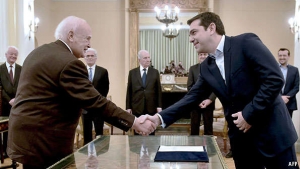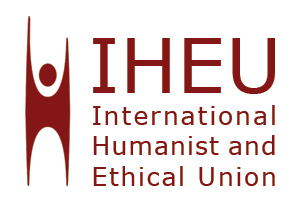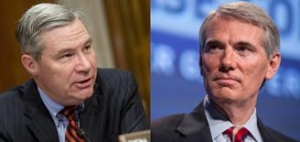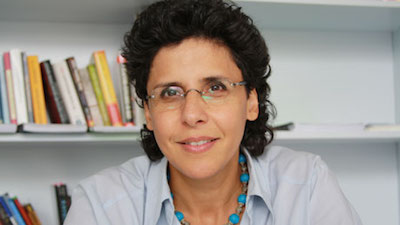The weekly report on secular trends and demographics
by Julie Esris
 In France last week, doctor and lawmaker Jean Leonetti proposed a bill that would make death for terminally ill patients more peaceful. Unlike euthanasiaÔÇöwhich hastens deathÔÇöthis medical procedure would instead induce a deep, irreversible sleep for people who are within hours or days of death. It seems to be an odd compromise for pro- and anti-euthanasia camps; it seems odd that this issue should entertain any compromise at all. But then again, very few issues are as divisive and contentious as euthanasia. Many people believe that terminally ill or hopelessly suffering patients have the right to die with the help of a doctor. Others believe that euthanasia is morally wrong under all circumstances. A 2013 Pew Poll reveals that the majority of Americans (66%) believe that there are circumstances in which a patient should be allowed to end his or her own life. However, for reasons that are unclear, the minority of Americans who are opposed to euthanasia has increased over the years. In fact, many attempts to legalize euthanasiaÔÇöin the United States and elsewhereÔÇöhave either failed or have only marginally succeeded in the form of compromises similar to the bill proposed in France.
In France last week, doctor and lawmaker Jean Leonetti proposed a bill that would make death for terminally ill patients more peaceful. Unlike euthanasiaÔÇöwhich hastens deathÔÇöthis medical procedure would instead induce a deep, irreversible sleep for people who are within hours or days of death. It seems to be an odd compromise for pro- and anti-euthanasia camps; it seems odd that this issue should entertain any compromise at all. But then again, very few issues are as divisive and contentious as euthanasia. Many people believe that terminally ill or hopelessly suffering patients have the right to die with the help of a doctor. Others believe that euthanasia is morally wrong under all circumstances. A 2013 Pew Poll reveals that the majority of Americans (66%) believe that there are circumstances in which a patient should be allowed to end his or her own life. However, for reasons that are unclear, the minority of Americans who are opposed to euthanasia has increased over the years. In fact, many attempts to legalize euthanasiaÔÇöin the United States and elsewhereÔÇöhave either failed or have only marginally succeeded in the form of compromises similar to the bill proposed in France.
There are many reasons why people are against euthanasia. According to a┬áPew Poll, Views on End-of-Life Medical Treatments ÔÇö which surveyed adult American Protestants, Catholics, and those unaffiliated with any religionÔÇö there is a strong correlation between religiosity and opposition to euthanasia. 85% of those unaffiliated with any religion believe that euthanasia is morally acceptable in cases in which a patient is in excruciating pain with no hope for improvement; 78% if the patient has an incurable disease; 52% if the patient finds life burdensome for himself; and 44% if the patient is a heavy burden on his family. These numbers are lower for the Protestants and Catholics surveyed. Of the religious groups surveyed, white mainline Protestants are the most supportive of euthanasia, with 71% if the patient is in excruciating pain with no hope for improvement; 64% if the patient has an incurable disease; 37% if the patient finds life burdensome for himself; and 31% if the patient is a heavy burden on the family. White Catholics and Hispanic Catholics are even less likely to support euthanasia, with 67% and 56% respectively if the patient is in excruciating pain with no hope of improvement; 62% and 46% respectively if the patient has an incurable disease; 47% and 33% respectively if the patient finds life burdensome for himself; and 40% and 23% respectively if the patient is a heavy burden on his family.
There are concerns, however, that are nonreligious, and the race of those polled factors strongly. Hispanic Catholics are less likely than white Catholics to support euthanasia under all circumstances described. The poll also revealed that black non-evangelical Protestants are the least likely of those surveyed to support euthanasia; the percentage that do support it is similar to the percentage of evangelical white Protestants. The fact that these comparable percentages transcend degrees of religiosity when race is factored is important to consider. Perhaps African-Americans are wary of euthanasia because of their history of being mistreated long after slavery was abolished in America. After all, a fear among many people is that euthanasia could act as a ÔÇ£slippery slopeÔÇØ into Nazi-style eugenics programs.
Another concern is that older people may feel pressured by their families to die when their care becomes too burdensome. An article from the Catholic News Service voices concerns about the legalization of euthanasia. Richard Doerflinger, associate director of the U.S. BishopsÔÇÖ Secretariat for Pro-Life Activities, asserted that it would seriously impede any improvements to palliative care:
“Often even the initial request for death is really a call for help. It’s not saying, ‘I want to die,’ it’s saying, ‘I don’t want to be like this,'” and palliative care can address those problems, he said. “Ultimately the solution is love.ÔÇØ
Other doctors interviewed made similar comments. One doctor from the Netherlands, where euthanasia is legal, felt that the procedure was replacing medicine. An American psychiatrist commented that those to whom he spoke who survived suicide attempts were glad to be alive. There is no indication of these doctorsÔÇÖ religious affiliations, if any. However, it is worth asking whether the writers of the article cherry-picked the comments that they used, only citing medical professionals who are opposed to euthanasia in order to support their opinion.
Active euthanasiaÔÇödoctor-administered lethal injectionÔÇöis legal in the Netherlands and Belgium. Passive euthanasiaÔÇöwithholding of medical treatment at the patientÔÇÖs request so that the patient can die naturallyÔÇöis practiced in many countries including the United States. There are also jurisdictions that have right-to-die lawsÔÇöor are looking to pass right-to-die lawsÔÇöthat seem to be a halfway point between passive and active euthanasia. The U.S. states of Washington, Oregon, Montana and Vermont allow doctors to prescribe lethal doses of medication for patients who have six or fewer months to live.
As with the French deep sleep bill, these laws are a compromise of sorts. More specifically, they seem to indicate the reluctance of lawmakers to allow doctors to be directly involved with a patientÔÇÖs death. The American right-to-die programs allow the doctor to prescribe the medication, but the patient must take it himself. In fact, if he cannot move on his ownÔÇöas in cases of advanced Lou GehrigÔÇÖs diseaseÔÇö he cannot take the lethal medication even if he otherwise meets the qualifications for it. The deep sleep bill in France does not even hasten death but just puts the patient to sleep, and the patient already has to be imminently close to death. In fact, if the patient cannot wake up from this sleep, what difference does it make ethically that he is technically still alive for a few days?
When we as secular humanists consider euthanasia and other similarly contentious issues, it is important to maintain a rational approach. As a logical first step, we must consider why the laws so often reflect human irrationality. Perhaps the American laws and the bill in France reflect a sort of cautiousness that transcends religious beliefs, a fear of the slippery slope into eugenics. This could explain why the legislatures apparently see a vast difference between passive and active euthanasiaÔÇöeven though the ultimate outcome is the sameÔÇöwith passive euthanasia being more morally acceptable. While this discrimination between the two types of euthanasia is understandable, it certainly is not logical. Why is it morally acceptable for a patient to refuse treatment but not to receive a quick, peaceful lethal injection? Depending on the nature and progression of the illness, death after refusing treatment may mean hours, days, or even months of suffering. As for the bill in France, dying under sedation over the course of a few days may be more peaceful than dying in pain over the same amount of time, but what is the point? In both cases, the patient ultimately dies. Why not just administer a lethal injection so the patient dies quickly?
It is clear that many people often lose sight of the importance of quality of life versus quantity of life. It is important for a severely ill patient considering euthanasia to seek advice from doctors and loved ones, but he has to make the choice on his own. Of course, he should not be pressured into this decision, and assiduous safeguards should be implemented to prevent the type of abuse feared by opponents of euthanasia. That is the logical and humane approach with which we as secular humanists should approach this issue. The important thing to remember is that the patientÔÇÖs decision must be autonomous, and that is and should always be the point of legalizing euthanasiaÔÇögiving the patient a personal choice that he ultimately makes himself. After all, it is his life.
And death.
For further reading, see Death with Dignity: the Laws & How to Access Them and Right to Die, or Duty to Die? The Slippery-Slope Argument Against Euthanasia Revisited.
 This story is remarkable because 98% of all Greeks are members of the Greek Orthodox Church!
This story is remarkable because 98% of all Greeks are members of the Greek Orthodox Church! It’s hard to overstate what a rupture this marks with the ceremonial culture of Greece. For as long as anybody can remember, every senior office-holder, from socialists to right-wing dictators, has assumed the post with a ritual involving Bibles, crosses and often holy water, sprinkled about with a sprig of basil. The opening words of the Greek constitution recall the theological formulas of the early church which predate by the Hellenic state by more than 1,300 years: “In the name of the holy, consubstantial and indivisible Trinity……”
It’s hard to overstate what a rupture this marks with the ceremonial culture of Greece. For as long as anybody can remember, every senior office-holder, from socialists to right-wing dictators, has assumed the post with a ritual involving Bibles, crosses and often holy water, sprinkled about with a sprig of basil. The opening words of the Greek constitution recall the theological formulas of the early church which predate by the Hellenic state by more than 1,300 years: “In the name of the holy, consubstantial and indivisible Trinity……”  We support secularists running for government! Kim Sj├Âstr├Âm of coalition member
We support secularists running for government! Kim Sj├Âstr├Âm of coalition member 


 In France last week, doctor and lawmaker Jean Leonetti
In France last week, doctor and lawmaker Jean Leonetti  Last week, the popular BBC radio show and podcast, Infinite Monkey CageÔÇösomething of a hybrid of Bill Nye the Science Guy and Wait, Wait… DonÔÇÖt Tell Me!ÔÇö
Last week, the popular BBC radio show and podcast, Infinite Monkey CageÔÇösomething of a hybrid of Bill Nye the Science Guy and Wait, Wait… DonÔÇÖt Tell Me!ÔÇö Last Thursday, Fellow Elham Manea wrote in the
Last Thursday, Fellow Elham Manea wrote in the  New SPI guides have been added to 
New SPI guides have been added to  SPI Staff had meetings with the following offices: Senator Portman, Senator Whitehouse and Representative Scott. These meetings varied in topics surrounding separation of government and religion and promotion of science.
SPI Staff had meetings with the following offices: Senator Portman, Senator Whitehouse and Representative Scott. These meetings varied in topics surrounding separation of government and religion and promotion of science. Jason Heap of SPI coalition member UnitedCoR is encouraging secularists in the United States to petition politicians for a National Day of Reason resolution. See
Jason Heap of SPI coalition member UnitedCoR is encouraging secularists in the United States to petition politicians for a National Day of Reason resolution. See  Coalition member Rationalist Society of Australia has proposed an
Coalition member Rationalist Society of Australia has proposed an  The Council of Ex-Muslims of Britain, another coalition member, has announced the
The Council of Ex-Muslims of Britain, another coalition member, has announced the  And seven weeks into coalition building, we have
And seven weeks into coalition building, we have  The mid-century discovery of antibiotic medications represented an epic scientific advance against bacterial infections and death. But it didn’t take bacteria long to begin to fight back. The first counter-offensive was something of a surprise, with the bacterial armies wielding a potent secret weapon in the form of impenetrable new armor: resistance. Indeed, the bacterial propensity to produce resistance to anti-bacterial medications enjoined medical research in a century-long series of battles to out-flank the battle-hardened bacteria. Science was forced to develop increasingly savvy serums to counter the microbial resistances that held science fast in its tracts until, it seemed, that the tide began to turn in favor of the microbial mighty-mights.
The mid-century discovery of antibiotic medications represented an epic scientific advance against bacterial infections and death. But it didn’t take bacteria long to begin to fight back. The first counter-offensive was something of a surprise, with the bacterial armies wielding a potent secret weapon in the form of impenetrable new armor: resistance. Indeed, the bacterial propensity to produce resistance to anti-bacterial medications enjoined medical research in a century-long series of battles to out-flank the battle-hardened bacteria. Science was forced to develop increasingly savvy serums to counter the microbial resistances that held science fast in its tracts until, it seemed, that the tide began to turn in favor of the microbial mighty-mights. New guidance published by National Health Service England, the country’s all-encompassing government health care, will require hospitals to consider the needs of non-religious patients by ensuring they have access to appropriate pastoral care.
New guidance published by National Health Service England, the country’s all-encompassing government health care, will require hospitals to consider the needs of non-religious patients by ensuring they have access to appropriate pastoral care.
 Last week, SPI Fellow Elham Manea, Professor at the University of ZurichÔÇÖs Institute for Political Science, solidified publication plans for her next book, Women and Shari’ah Law: The Impact of Legal Pluralism in the UK, which will be released in 2016. She has already published numerous academic and nonfiction books in English, German, and Arabic, in addition to two novels. Her latest was a book entitled
Last week, SPI Fellow Elham Manea, Professor at the University of ZurichÔÇÖs Institute for Political Science, solidified publication plans for her next book, Women and Shari’ah Law: The Impact of Legal Pluralism in the UK, which will be released in 2016. She has already published numerous academic and nonfiction books in English, German, and Arabic, in addition to two novels. Her latest was a book entitled  Shermer also appears in
Shermer also appears in